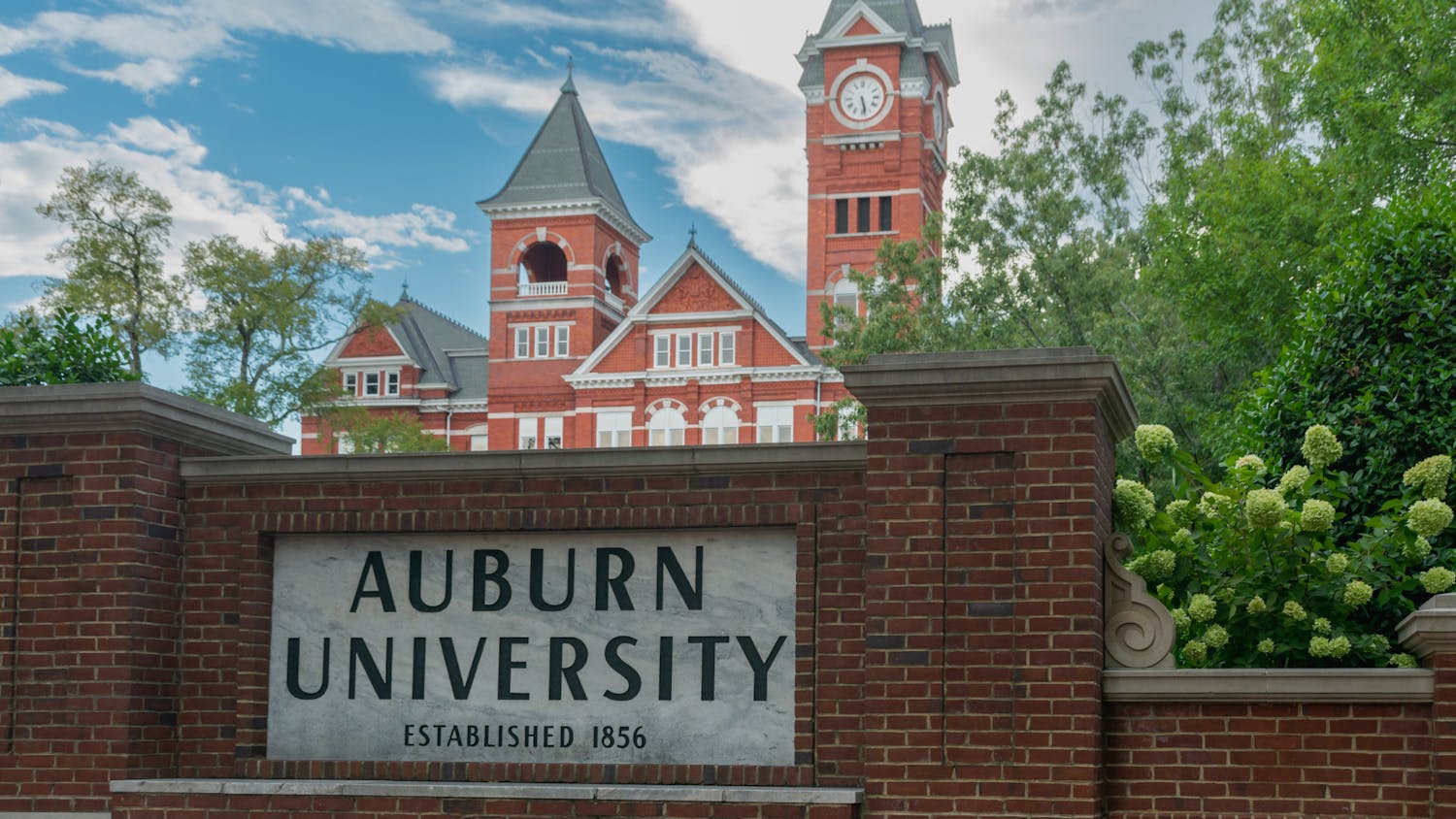Smokers on campus may soon get burned.
The Campus Health and Wellness Committee, made up of faculty, staff and students, is investigating the possibility of making Auburn a smoke-free campus.
The initiative stems from a letter a group of students wrote to President Jay Gogue in spring 2010 asking him to consider eliminating smoking on campus.
The main concern of the University is secondhand smoke, said Eric Smith, committee member and director of health promotion and wellness services.
"I've always approached this as trying to protect the rights of a majority, not punish a minority," Smith said. "Because if the majority of the population here isn't smoking, but they have to walk through clouds of smoke just going about their daily business here, our environment is hurting them in that regard."
With more than 50 chemicals in cigarette smoke known to be direct causes of cancer, smoking kills approximately 400,000 people each year, Smith said. Of that number, secondhand smoke kills 40,000.
"You're here to get an education, you're here to work, you're here to be part of the Auburn family, and you don't need to be exposed to secondhand smoke as a part of that," Smith said. "That's the argument people are making."
In November, the Surgeon General released a report saying secondhand smoke is not safe to breathe at any level.
"Smoking is bad for your health--period," said Fred Kam, director of the AU Medical Clinic. "I understand it may inconvenience some people who are smokers, et cetera, but there is no health benefit that they will get out of continuing to smoke. If it's something we can do to help decrease their risk factors for stroke, heart disease, cancer and other things, then it makes total sense."
In the United States, 466 college campuses have smoking bans, with the only one in Alabama being Calhoun Community College. In the SEC, Kentucky, Florida, Vanderbilt and Arkansas are smoke free.
Georgia and Alabama are considering their options also, Smith said.
Smith has organized a team of students and faculty to gauge opinions on the issue through surveys, a possible town forum and a newly launched blog.
"The feedback I've received so far has been pretty positive for the most part," Smith said. "We've talked to a lot of people and a lot of different audiences, and generally speaking, people are OK with it."
Smith said an option for the University to consider is establishing "buffer zones," or areas around buildings where smoking is prohibited to a certain distance.
"You've got to make headway where you can," Smith said. "If we're enabling people to walk in and breathe clean air coming in the building, that's a good thing. There's a lot of good reasons out there for just going completely smoke free though, and that would be the preferred way to go."
Another reason, Smith said, is the cost associated with smoking--both for the University and for the state.
Smith said research at the University of Kentucky estimated self-insured institutions spend an extra $5,200 in lifetime insurance costs per smoker.
On a larger scale, the American Lung Association reported in 2010 that smoking costs Alabama $3.68 billion each year.
Kam said he would expect a no-smoking policy to cause a decrease in the number of smokers.
"I think if it became more inconvenient, then there's a higher likelihood that they would have more of an incentive to stop," Kam said.
Smith said the University would announce the policy far enough in advance to allow smokers time to prepare, as well as offer cessation programs to help smokers quit.
"We wouldn't want to say, 'No smoking' and not offer ways for students, faculty and staff to stop smoking," Smith said. "The cessation programs are key."
Kim Trupp, director of housing, said she thinks a no-smoking policy might deter students from living on campus.
"What may happen is, especially with first-year students, maybe mom, dad or whoever takes care of them doesn't know they smoke," Trupp said. "Mom and dad want them to live on campus, so they're kind of in between a rock and a hard place if that happens. Then hopefully that would be a motivation to quit smoking before they ever got here to campus."
Smith said the biggest hurdle his committee faces is the question of how the policy would be enforced.
"I don't know if we have a lock stock answer on that yet," Smith said. "It's still being debated...We're looking for ideas."
At some universities, a campus police force issues citations or tickets to people found smoking.
Smith said Auburn would not use police enforcement, instead treating student violations as a conduct issue and employee violations as a supervisory issue.
Students and faculty can share their opinions at www.auburnsmokingpolicy.wordpress.com or by sending an e-mail to eric.smith@auburn.edu.
"I want to hear your feedback," Smith said. "We need to hear not only from smokers who are anti, but from people who have educated themselves about the issue and feel that secondhand smoke is a public health issue. I hate for there to be this silent majority out there that doesn't get heard."
Do you like this story? The Plainsman doesn't accept money from tuition or student fees, and we don't charge a subscription fee. But you can donate to support The Plainsman.




